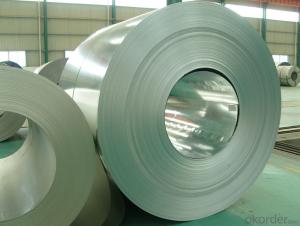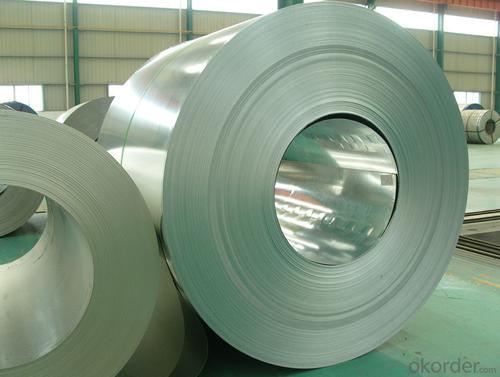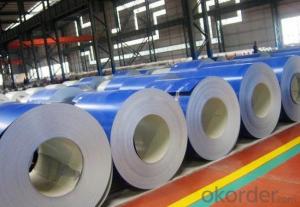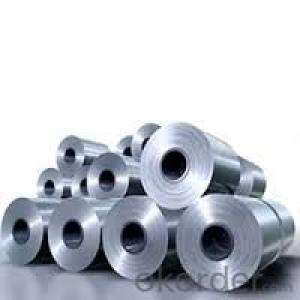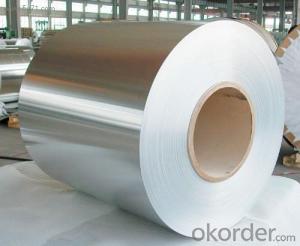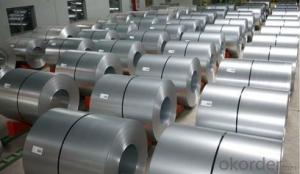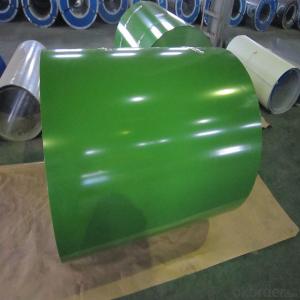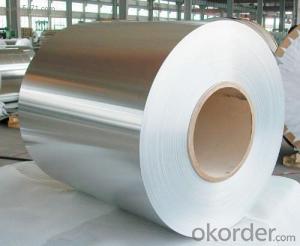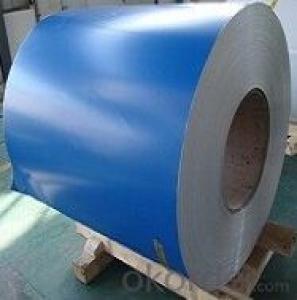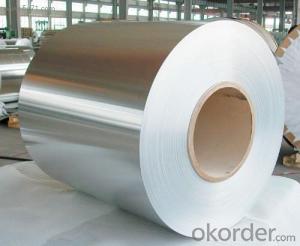Hot-dip Zinc Coating Steel Building Roof Walls -- Good Formability
- Loading Port:
- China main port
- Payment Terms:
- TT OR LC
- Min Order Qty:
- 50 m.t.
- Supply Capability:
- 10000 m.t./month
OKorder Service Pledge
OKorder Financial Service
You Might Also Like
Hot-dip Zinc Coating Steel Building Roof Walls -- Good Formability
1.Structure of Hot-dip Zinc Coating Steel Building Roof Walls -- Good Formability :
Hot-dip galvanized steel coils are available with a pure zinc coating through the hot-dip galvanizing process. It offers the economy, strength and formability of steel combined with the corrosion resistance of zinc. The hot-dip process is the process by which steel gets coated in layers of zinc to protect against rust. It is especially useful for countless outdoor and industrial applications.
2.Main Features :
• Excellent process capability
• Smooth and flat surface
• Workability, durability
• Excellent anticorrosive property
• High strength
3.Images:
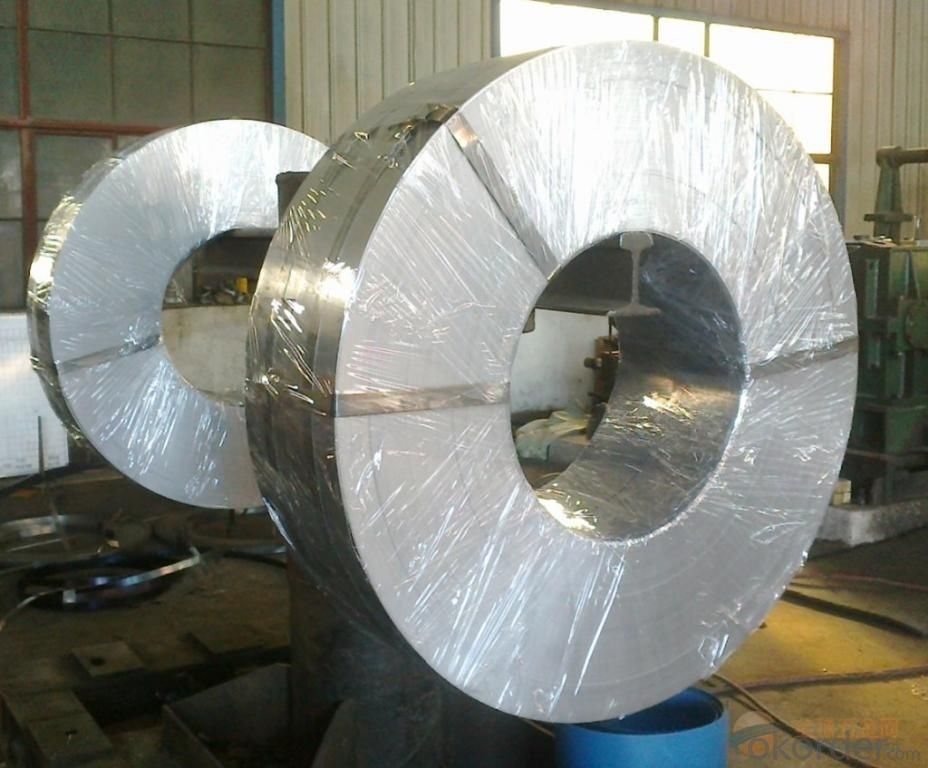
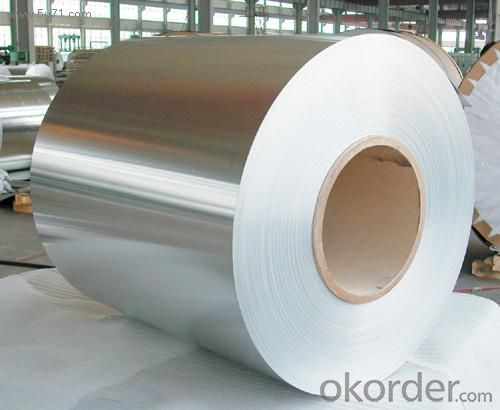
4.Hot-Dip Galvanized Steel Sheet Specification
Standard: ASTM, JIS,EN
Grade: CS, DX51D+Z,SGCC, SS 230~550,S220GD+Z~S550GD+Z, SGC340~SGC570
Thickness: 0.18mm~5mm
Width: max 2000mm
Coil weight:3-12 MT
Coil ID:508/610mm
Surface structure: zero spangle, regular spangle or minimum spangle
Surface treatment: Chromate treatment, Oiled/dry, skinpassed/non-skinpassed
5.FAQ of Hot-Dip Galvanized Steel Sheet
We have organized several common questions for our clients,may help you sincerely:
1.How to guarantee the quality of the products?
We have established the international advanced quality management system,every link from raw material to final product we have strict quality test;
2. How long can we receive the product after purchase?
Usually within thirty working days after receiving buyer’s advance payment or LC. We will arrange the factory manufacturing as soon as possible. The cargo readiness usually takes 15-30 days, but the shipment will depend on the vessel situation.
- Q: Can steel coils be coated with anti-glare materials?
- Yes, steel coils can be coated with anti-glare materials. Coating steel coils with anti-glare materials helps to reduce or eliminate the reflection of light, improving visibility and reducing eye strain in various applications.
- Q: I saw an amazing flamenco player, however i have a steel string guitar, where he had a nylon stringed one. So i was wndering if its possible to play flamenco songs on the steel string guitar, and where could i find a tab for it? are there tabs for rasegueados?
- Well, you couldn't play traditional flamenco on a steel string guitar, that's for sure. What you could do is learn some flamenco chords and chord progressions. One problem is that a lot of flamenco techniques on a steel string guitar -- rasgueado, for example -- will literally sand your right hand fingernails down to the nub. It's not going to be pretty, and will probably be painful. Even on a flamenco guitar I protect my right hand nails with a thin coat of super glue. Also, the fingerboard of a flamenco guitar is wider than that of a steel string guitar. That's because many of the notes played in flamenco are actually played with the left hand, not the right hand - lots of hammer ons and pull offs. You can do that higher up the neck on an steel string guitar, but it would be hard to do that in first position on that guitar. Anyway, yes, to a small extent you could conceivably do something that has a flamenco sound on a steel string guitar. But why? You can get a great student model flamenco guitar from Yamaha. It's only $350. Then, you need a teacher. Flamenco is difficult to learn (I've been at it for ten years) and it's important to learn from an instructor who can teach you the correct techniques. Otherwise, you just have to learn everything all over again when you finally do take lessons. Intermediate and advanced students can learn from a video, but beginners really need face time with an instructor. Best wishes.
- Q: i see a lot of connexes say repair only with corten steel. what is the difference between corten steel and regular steel. and if i was going to stick weld it what type of electrode would i use?and while i'm at it what is the best electrode to use when welding galvenized steel?
- 6010 and 6011 Electrodes for welding galvenized steel. Weathering steel, best-known under the trademark COR-TEN steel and sometimes written without the hyphen as Corten steel, is a group of steel alloys which were developed to obviate the need for painting, and form a stable rust-like appearance if exposed to the weather for several years. The corrosion-retarding effect of the protective layer is produced by the particular distribution and concentration of alloying elements in it. The layer protecting the surface develops and regenerates continuously when subjected to the influence of the weather. In other words, the steel is allowed to rust in order to form the 'protective' coating. For welding corten steel: 1A.W.S ClassificationE 7018 - 1AWS A 5 - 1 - 78 2IS classificationE 5424 JXIS 814 (Part I II)H 3BS classificationE 51.54 B 12 17HBs 639 - 1976
- Q: How are steel coils inspected for thickness and width accuracy?
- Steel coils are inspected for thickness and width accuracy using various methods. One common method is using non-contact laser or ultrasonic sensors that scan the surface of the coil to measure its thickness and width. These sensors provide accurate measurements without physically touching the coil. Additionally, manual measurements can be taken using calipers or micrometers to verify the accuracy of the coil's dimensions. Overall, a combination of non-contact sensors and manual measurements ensure that steel coils meet the required thickness and width specifications.
- Q: I have a steel plate 3' long x 2 wide x 3/16 thick. I have a 1/2 diameter hole with the center 3/4 from the end. Tensile strength is 38,000psi. A chain goes through the hole and is connected to a load. how does one determine how much tension the chain can have before it rips through the hole?
- Your title asks for the working load, yet your problem asks for the failure load (ripping the plate). These are two different things, since there must be a factor of safety on the failure load to get to the working load. The factor of safety varies from code to code and depending on what the plate/chain is being used for. The failure load would be the net cross section of the plate (after subtracting out the hole) x the strength of the plate. In this case it would be (2 - .5)*3/16*38000psi=10,687.5 lbs You would also need to check the strength of the chain to make sure that it doesn't break before the plate.
- Q: Hi All,I was wanting to know,on the quality bikes such as Trek,Giant etc is the aluminum frames as strong as the steel frame bikes? I have heard conflicting reports on this,so thought I would ask here for more input.Thanks!
- Dustin You are close, but not quite right. Steel is a great frame material, It can be heavier than its aluminum counter part, But, steel often provides a much nicer ride. Aluminum tends to be a very stiff and rigid ride that many do not like. I have had frames made of all materials. I can say that I have never met a frame material that I did not like. Check the weight of the frames you are looking at. If there is more than two pound (or so) difference then the aluminum frame would be my choice. Soccerref
- Q: Is it faster to smith steel or mithril in Rinescape assuming I'm going to mine everything myself?Mining level: 76Smithing level: 55
- i think steel would be better since there isn't a lot of mithril ore and it would take a lot of time to mine it and it will take also 4 coals to make a mith bar and 2 only for a steel bar
- Q: I was curious to what type of steel I should get if I wanted something that kept its edge longer than 154cm but is still just as stainless. I don't know much about knife steels inform me please?
- If you want a good quality knife, stay away from Stainless, I would suggest one that is a mix of high and low carbon steel, high carbon holds the edge, but is brittle, low carbon is more malleable, which prevents from breaking when used.
- Q: So we all know a 1000lb steel ball will sink in water, but if you were to leave the center of the ball hollow and fill with air, if the steel ball was big enough in diameter it should float correct? What size would the steel ball need to be to float?
- specific gravity of a steel is approximately 7.82 as compared to water. so, the hollow sphere(filled with air) is having volume more by 7.82 as compared to solid sphere, then the 1000 lb hollow steel ball float in the water (Why Do Ships Float? The Greek Mathematician and inventor Archimedes lived during the 3rd century BC. According to history he was in the bath one day when he discovered the principle of buoyancy which is the reason why huge Greek ships weighing thousands of pounds could float on water. He noticed that as he lowered himself into the bath, the water displaced by his body overflowed the sides and he realised that there was a relationship between his weight and the volume of water displaced. It is said that he ran naked into the street yelling heurEka which is where we get our word eureka! (I found it), Greek heurEka I have found, from heuriskein to find. The Buoyancy Principle: Archimedes continued to do more experiments and came up with a buoyancy principle, that a ship will float when the weight of the water it displaces equals the weight of the ship and anything will float if it is shaped to displace its own weight of water before it reaches the point where it will submerge. This is kind of a technical way of looking at it. A ship that is launched sinks into the sea until the weight of the water it displaces is equal to its own weight. As the ship is loaded, it sinks deeper, displacing more water, and so the magnitude of the buoyant force continuously matches the weight of the ship and its cargo.)
- Q: My mother is in a weilding class, and today she accidentally welded Galvanized Steel. She doesn't feel good and she wants to know what the symptoms are for Galvanized Poisoning from breathing in the Fumes. Please help, I am worried for her.
- Pot stands and stoves constructed from galvanized steel can cause metal fume fever when heated. This is caused by the inhalation of zinc oxide fumes or dust produced when galvanized steel is welded or burned. The signs and symptoms can be vague (shaking chills, fever, body aches, headache, and fatigue) and are similar to those of the flu or a viral illness.
Send your message to us
Hot-dip Zinc Coating Steel Building Roof Walls -- Good Formability
- Loading Port:
- China main port
- Payment Terms:
- TT OR LC
- Min Order Qty:
- 50 m.t.
- Supply Capability:
- 10000 m.t./month
OKorder Service Pledge
OKorder Financial Service
Similar products
Hot products
Hot Searches
Related keywords
